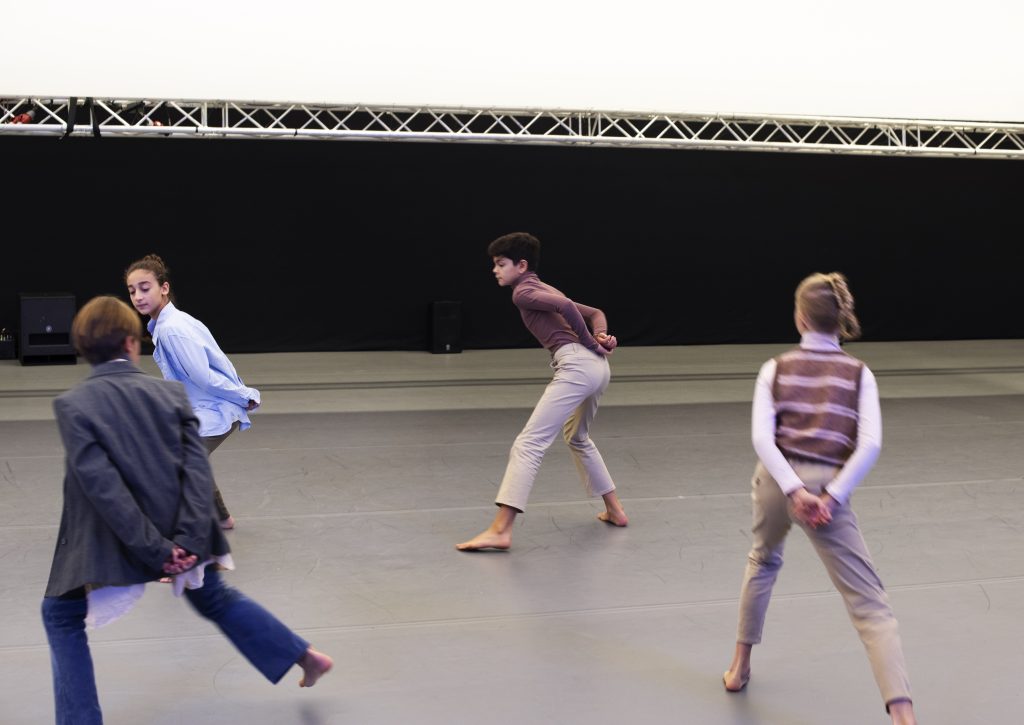Malin Elgán
Studio grant holder at The International Dance Programme in Stockholm 1 December 2021 – 28 February 2022
Malin Elgán is a choreographer and artist, based in Stockholm and active internationally. Elgán takes an interest in art beyond the genre-specific and operates through an expanded choreographic practice – through various expressions, formats and media. She does not let dance be limited to certain movements and places. Rather she takes dance out of its usual contexts to enable new meanings.

Barnformen, Photo: Ulf Lundin
Her work has been performed on stages such as MDT, Dansens Hus and Kulturhuset in Stockholm. Her work has also been shown in artistic contexts, in places such as at Moderna Museet, Nationalmuseum and Bonniers Konsthall in Stockholm as well as at Göteborgs konsthall, Nasjonalmuseet and Kunstnernes Hus in Oslo, Poppositions in Brussels, Ausland in Berlin and at the Museum of Contemporary Art in Zagreb.
During 2021 Elgán made the performance Barnformen (MDT, Haninge Kulturhus and Hallen in Farsta, Stockholm) where movements have swapped places from adult dancers to children. The piece is an extension of previous concepts from Formen sa: gör (MDT and Moderna Museet, Stockholm and Göteborgs konsthall and Atalante, Göteborg, 2007) which alternated various shapes, bodies and gestures taken from nature documentaries, feature films and something in the style of folk dance. The film installation Storyboard (Moderna Museet, Sthlm and Tanzfabrik, Berlin, 2009) is also a development of the same work, visualizing the process. In addition, Elgán has also been the guest editor for a special edition of the art magazine Paletten, which was temporarily renamed Baletten. In 2013, her choreographic practice was awarded the Birgit Cullberg grant.
During the residency, Elgán will work on a project which problematizes dance in relation to artistic freedom. The project focuses on how dance is created, takes place, and contributes to the commons. Taking influences, both in form and ideas from two different paths: conceptual art and romanticism, the purpose is to discuss art’s ability to take up time and space and achieve freedom.

